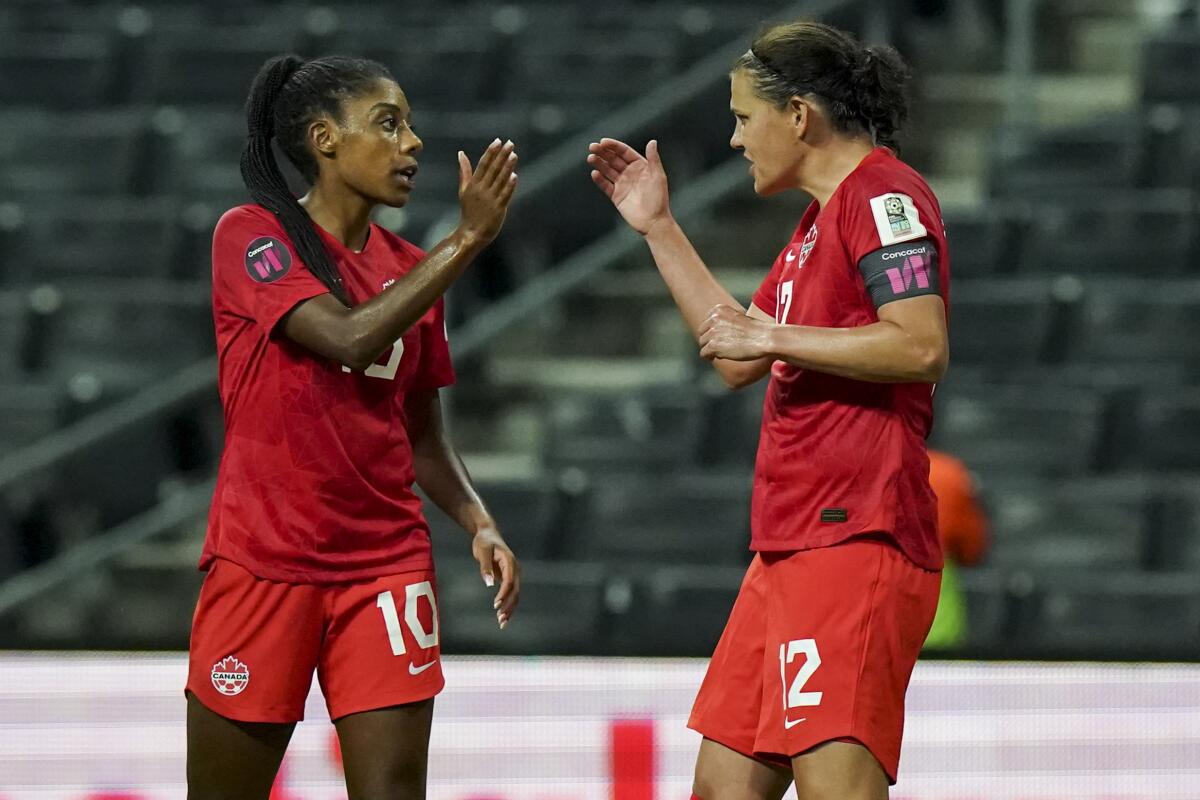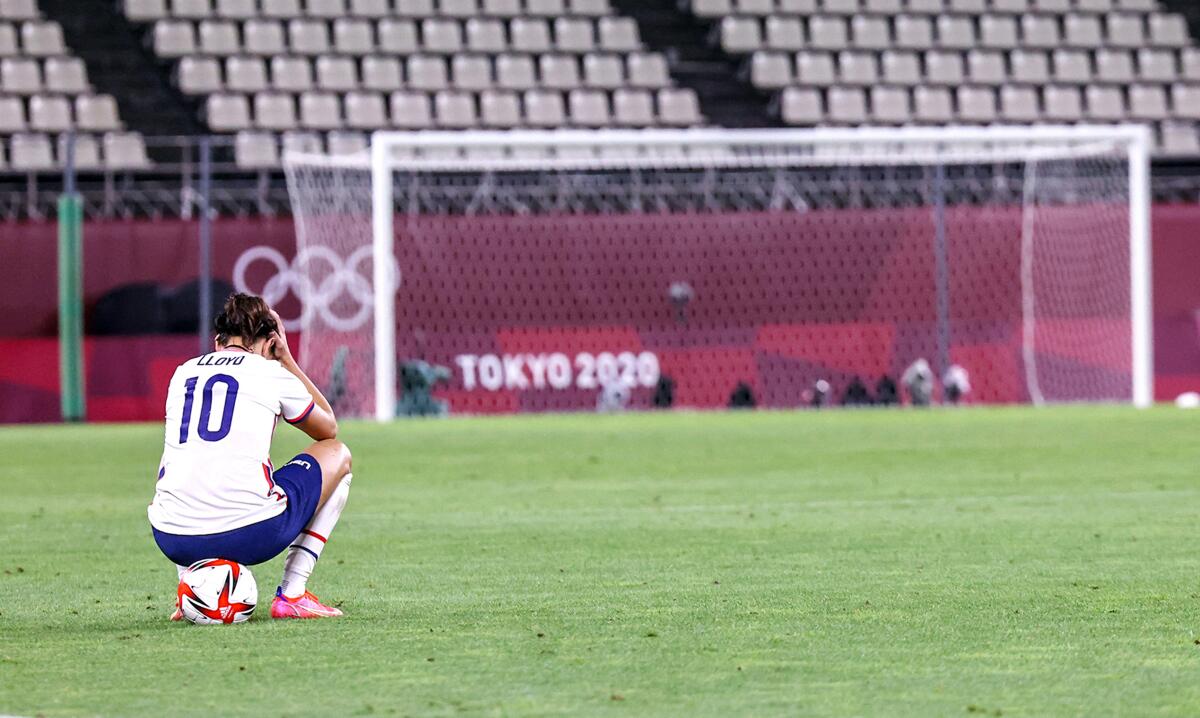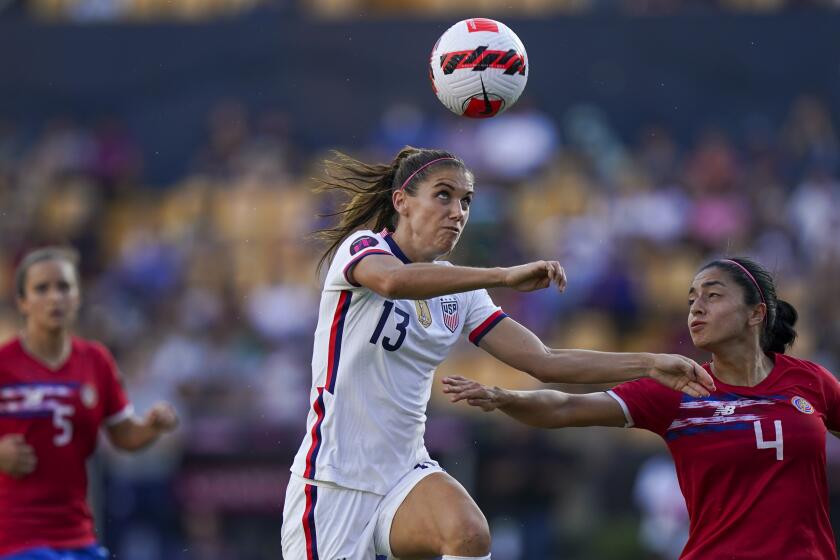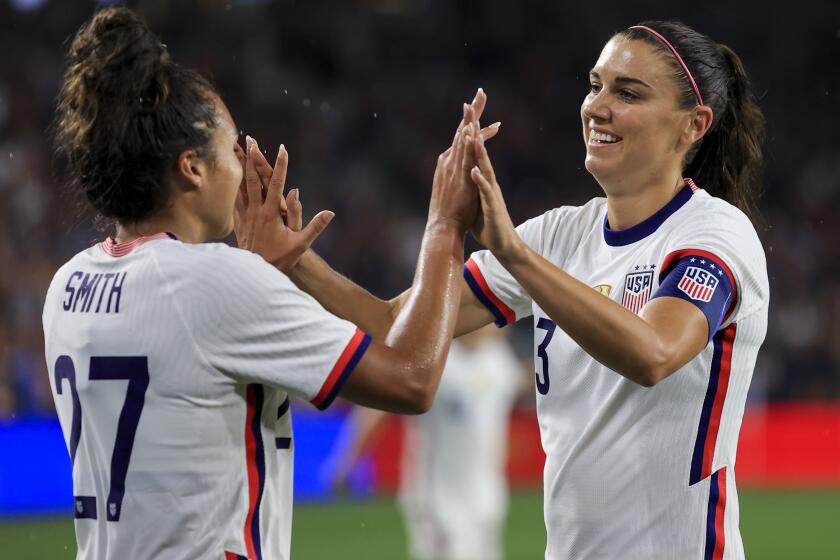Canada out to prove it can usurp the CONCACAF throne from U.S. women’s soccer

MONTERREY, Mexico — The names and faces have changed over the years, but for the U.S. women’s national soccer team, the results have rarely varied. That’s especially true in CONCACAF, the 41-country regional confederation the American women have ruled ruthlessly for four decades.
On Monday night at Estadio BBVA, a new-look U.S. team has a chance to run the table in another World Cup and Olympic qualifying tournament when it faces Canada in the final of the CONCACAF W Championship, with the region’s only automatic berth in the 2024 Paris Olympics at stake.
It’s the final everyone anticipated when the tournament kicked off two weeks ago, and it’s a rematch of last summer’s Tokyo Olympics semifinal, the last game the United States lost.
It’s also a final Canada must win to prove that victory in Japan was no fluke.
The USWNT blanked Costa Rica, 3-0, in the semifinal match of the CONCACAF W Championship in Monterrey, Mexico on Thursday.
“Obviously, heading into this tournament, we kind of knew if both teams played the way they’re capable of, we’d be meeting them in the final,” said Christine Sinclair, Canada’s captain and the only player on the team who has beaten the United States twice.
“Anytime we play the U.S., it’s a battle. And it’s the game both sides get excited for,” midfielder Desiree Scott added. “After Tokyo, there’s going to be a little bit of that fire and fight there.”
And more than a little bit of history and tradition on the U.S. side.
The Americans, ranked No. 1 in the world, have won 30 consecutive CONCACAF qualifiers dating to a 2010 loss to Mexico, and all 30 have come by way of shutout. Megan Rapinoe and Alex Morgan, the only women still on the roster who played in that 2010 game, have seen the U.S. outscore opponents 148-0 in CONCACAF play since that defeat, running its qualifying record to 59-1-1 overall.
Yet No. 6-ranked Canada, one of just two CONCACAF countries that have ever defeated the U.S., presents a different challenge. After beating the Americans last summer, Canada went on to win the gold medal, becoming the only women’s team to reach the podium in the last three Olympics.

That has changed the players’ mindset, Scott said.
“Our confidence going into this match is at an all-time high,” she said. “Nothing is ever given, it’s earned. And we know that coming into this final.
“But I think the mental space of the squad is a confident one.”
The United States, meanwhile, brought a bronze medal home from Japan, then embarked on a rebuilding project. As a result, 10 women who played for the U.S. team in that Olympic semifinal aren’t in Mexico while 13 of the 23 who are here are taking part in a World Cup or Olympic qualifier for the first time.
It’s a level of inexperience rare for a U.S. women’s team.
Women in sports often use social media to work around limited traditional media exposure, forge strong bonds with fans and earn endorsement money.
“They’ve obviously changed a little bit since the Olympics and got some new, young, fresh faces,” said Sinclair, whose goal in her team’s tournament opener was the 190th of her international career. “I think both teams will probably be tactically smart. Obviously, the U.S. isn’t a team that’s going to sit back and defend. And neither are we.“
Both teams qualified for next summer’s Women’s World Cup simply by reaching the final four in the CONCACAF W Championship, each scoring nine times in three shutout wins in the group stage before posting 3-0 victories in the semifinals, the United States over Costa Rica and Canada over Jamaica.
Yet CONCACAF has just one automatic spot in the next Olympics, and it will go to Monday’s winner. The loser will have to win its way to Paris in a playoff next year.
There’s more at stake in the final than just a trip to France.
Canada’s men finished first in their World Cup qualifying event this past spring, and if the women win theirs, it would mark the first time the country has won both CONCACAF tournaments in the same cycle. More importantly, it would be proof that Canada is mounting a serious threat to the region’s longtime rulers.
“There’s a new mindset of this team around the U.S.,” Canada coach Bev Priestman said. “It has given the players a level of confidence but not a level of arrogance. We’ve evolved since Tokyo.
“The team now view themselves as one of the best teams in the world. We don’t want to be a one-off team. We want to be a team that can consistently win on the world stage.”










